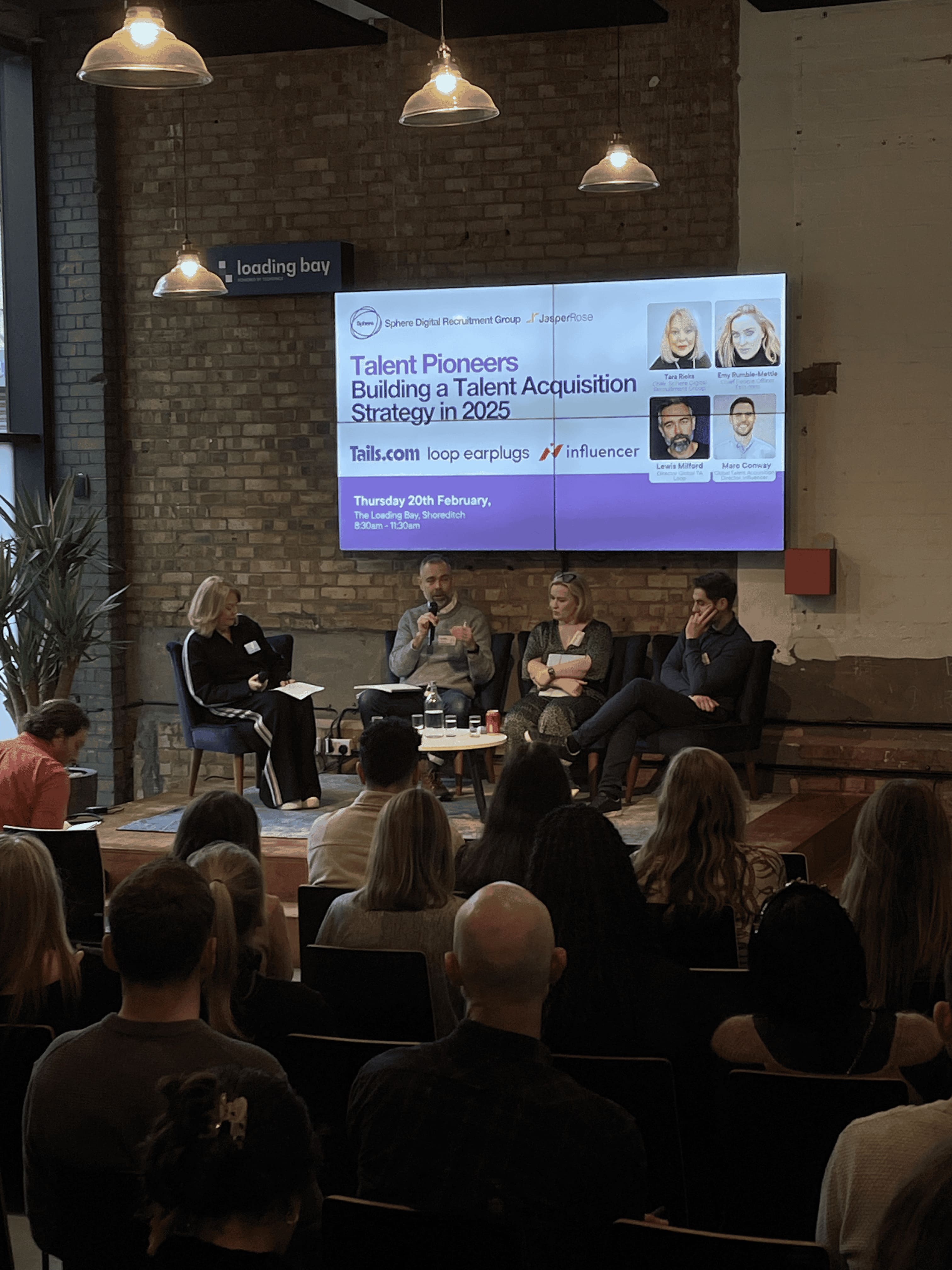
The Evolving Landscape of Media Planning and Buying Jobs: What You Need to Know for 2023
13 Mar, 20235 MinutesAs the media planning and buying industry continues to evolve, it's essential to keep up wit...

As the media planning and buying industry continues to evolve, it's essential to keep up with the latest trends, particularly when it comes to jobs in the field. Our recent salary survey offers a comprehensive overview of the current state of the industry, highlighting key insights on demographics, bonuses, benefits, and the reasons behind employee mobility. In this blog post, we'll delve into the survey results to help you stay informed and make strategic decisions in your career or when hiring talent.
Balancing Gender and Diversifying the Talent Pool in Media Planning and Buying
Amy Spring, our Agency Manager, notes a slight shift in gender representation within media planning and buying jobs: "We saw a shift in response this year – 52% of respondents were male in 2023 vs 53% in 2022. This could show us that things are leveling out in terms of gender split within the agency world, as this is still a very close margin!" Although the change is marginal, it suggests that the industry is gradually moving toward a more balanced gender distribution.
While the industry boasts a diverse age range and a nearly balanced gender representation, there's still progress to be made in terms of overall diversity. Amy points out that "our salary survey highlighted that 67% of the industry have parents who went to university, and 24% attended a fee-paying school." This data suggests that the industry is predominantly comprised of professionals from more privileged backgrounds.
To address this issue, organizations such as MEFA, agency boards, and various industry groups are taking action to promote equal opportunities and attract diverse talent. By broadening the scope of potential candidates, these organizations aim to create a more inclusive and representative workforce in media planning and buying.
Efforts to diversify the talent pool can include:
- Partnering with educational institutions and community organizations to raise awareness about career opportunities in media planning and buying among underrepresented groups.
- Offering internships, apprenticeships, or entry-level positions specifically designed for candidates from diverse backgrounds.
- Providing mentorship and networking opportunities to support the professional growth of individuals from underrepresented groups within the industry.
- Establishing diversity and inclusion initiatives within agencies to create an inclusive work environment that supports employees from all backgrounds.
- Setting diversity targets and measuring progress regularly to ensure that organizations remain accountable for their efforts in promoting a more inclusive workforce.
- Partner with recruitment agencies like Sphere Digital to work together on achieving your goals
The Impact on Employee Satisfaction and Retention in Media Planning and Buying
buying industry. However, as Amy Spring points out, "Only 13% of respondents responded that they were very satisfied with their salary." This dissatisfaction with pay may be one of the driving forces behind the trend of talent moving out of agencies into client-side or media owner roles, or even leaving the industry altogether.
In an attempt to attract and retain talent post-Covid, employers have become more generous with bonuses. However, our recent survey indicates a decrease in candidates receiving bonuses, with 43% receiving a bonus in 2023 compared to 53% in 2022. Amy suggests that employers were more inclined to offer signing bonuses in the past, which may have contributed to the higher percentage of candidates receiving bonuses in 2022.
Click here to view a comprehensive table of salaries for those working in Media Planning and Buying roles.
Why are People Moving Roles? Understanding Motivations and Addressing Employee Needs
According to our 2023 Salary Survey, in the media planning and buying industry, the main reason people seek new roles is to increase their pay, followed by better progression opportunities. With 55% of respondents considering a career move this year, it's crucial for companies to benchmark their salaries against industry standards to remain competitive and attractive to both current and potential employees.
To address these concerns and retain talent, employers can implement various strategies, such as:
Offering competitive salary packages: Regularly reviewing and adjusting salaries to align with industry standards can help employees feel valued and fairly compensated for their work. This can lead to increased job satisfaction and reduced turnover rates.
Providing clear career progression paths: Clearly outlining potential career paths within the organization can help employees envision their future within the company. By offering opportunities for growth and development, employers can keep their workforce motivated and engaged.
Encouraging continuous learning and development: Companies should invest in training and development programs to help employees enhance their skills and grow professionally. This not only benefits the individual but also contributes to the overall success of the organization.
Benefits: Responding to Employee Needs and Fostering a Supportive Work Environment
"The industry is definitely responding to what employees are asking for," says Amy, as 79% of workers benefit from flexible working arrangements, up from 76% last year. This highly sought-after benefit is now more prevalent, reflecting the industry's positive progress in addressing employee needs and creating a more supportive work environment.
Flexible working arrangements have become increasingly important to employees, offering a better work-life balance and accommodating various personal circumstances. Employers can further enhance employee satisfaction and well-being by considering additional benefits, such as:
Remote working options: Allowing employees to work remotely, either full-time or part-time, can contribute to higher job satisfaction and increased productivity. This can also help companies access a broader talent pool that may have been previously limited by geographical constraints.
Comprehensive healthcare benefits: Offering medical, dental, and optical insurance can help employees feel supported and valued, knowing that their well-being is a priority for the organization.
Mental health support: Providing access to mental health resources, such as counseling services or employee assistance programs, can contribute to a healthier, more resilient workforce.
By understanding employee motivations for changing roles and addressing their needs through competitive salaries, clear progression opportunities, and comprehensive benefits, employers in the media planning and buying industry can create a more attractive and supportive work environment that retains top talent and drives business success.
If you have any questions or want to partner with the specialists of media planning and buying roles, get in touch with Amy Spring - amys@spherelondon.co.uk



